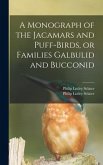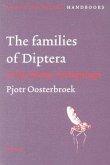Why do baby sharks, hyenas, and pelicans kill their siblings? Why do beetles and mice commit infanticide? Why are twins and birth defects more common in older human mothers? A Natural History of Families concisely examines what behavioral ecologists have discovered about family dynamics and what these insights might tell us about human biology and behavior. Scott Forbes's engaging account describes an uneasy union among family members in which rivalry for resources often has dramatic and even fatal consequences. In nature, parents invest resources and control the allocation of resources among their offspring to perpetuate their genetic lineage. Those families sometimes function as cooperative units, the nepotistic and loving havens we choose to identify with. In the natural world, however, dysfunctional familial behavior is disarmingly commonplace. While explaining why infanticide, fratricide, and other seemingly antisocial behaviors are necessary, Forbes also uncovers several surprising applications to humans. Here the conflict begins in the moments following conception as embryos struggle to wrest control of pregnancy from the mother, and to wring more nourishment from her than she can spare, thus triggering morning sickness, diabetes, and high blood pressure. Mothers, in return, often spontaneously abort embryos with severe genetic defects, allowing for prenatal quality control of offspring. Using a broad sweep of entertaining examples culled from the world of animals and humans, A Natural History of Families is a lively introduction to the behavioral ecology of the family.
Hinweis: Dieser Artikel kann nur an eine deutsche Lieferadresse ausgeliefert werden.
Hinweis: Dieser Artikel kann nur an eine deutsche Lieferadresse ausgeliefert werden.



![Synopsis of the Families and Genera of North American Diptera [microform]: Exclusive of the Genera of the Nematocera and Muscidæ, With Bibliography an Synopsis of the Families and Genera of North American Diptera [microform]: Exclusive of the Genera of the Nematocera and Muscidæ, With Bibliography an](https://bilder.buecher.de/produkte/65/65491/65491199m.jpg)
![Manual of the Families and Genera of the North American Diptera [microform] Manual of the Families and Genera of the North American Diptera [microform]](https://bilder.buecher.de/produkte/65/65523/65523434m.jpg)



